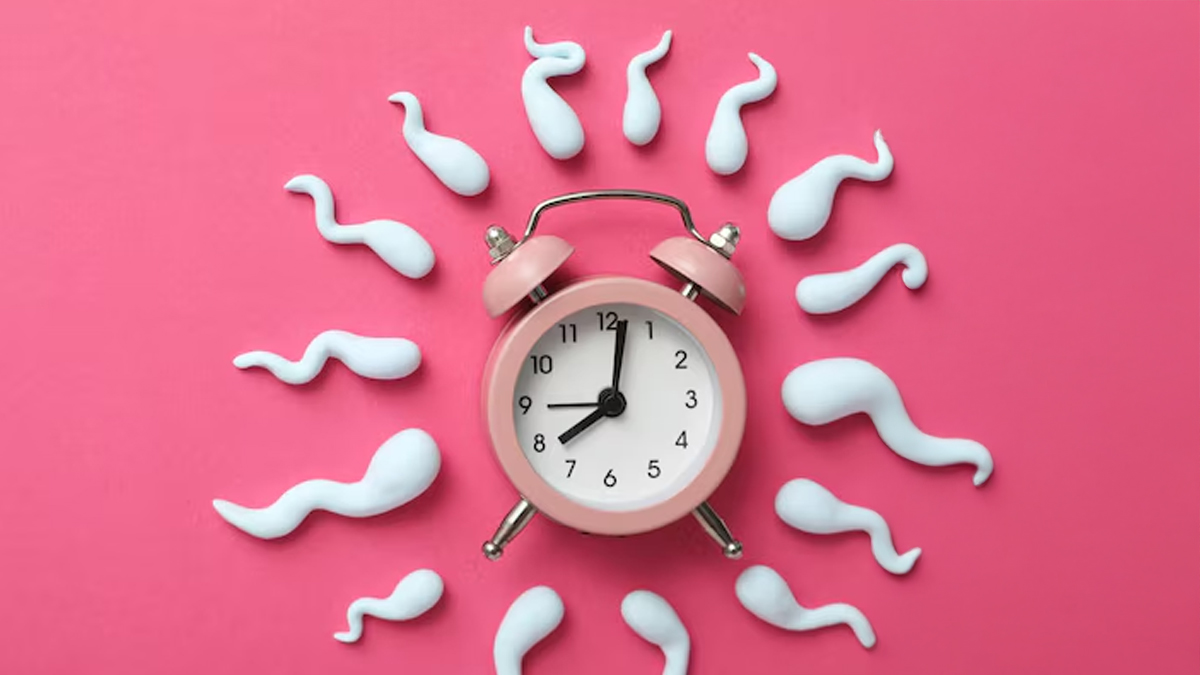
With more women choosing to delay pregnancy for career, financial, or personal reasons, pregnancy after 35 has become increasingly common. However, this delay does not always fare well with one's overall health. It comes with certain health implications that often go unnoticed until they become harder to manage.
Table of Content:-
According to Dr Gunjan Kumari Bhagwat, Infertility Specialist and Laparoscopy Surgeon, Apollo Fertility, Ghaziabad, women over 35 should be aware not just of fertility challenges but also of subtle signs and risks that can affect both reproductive and overall health.
Also Read: Can Women With Endometriosis Conceive Without Fertility Treatment? Doctor Clarifies
Age And Reproductive Health: What Changes After 35?

A 2024 study published in BMC Pregnancy and Childbirth reports that about 19% of women faced delays in conceiving naturally. Age 35 and above was found to be a significant contributing factor, along with irregular menstrual cycles, lower frequency of sexual activity, and sexual dysfunction.
But while fertility is a primary concern for women delaying pregnancy, age can impact much more than just the ability to conceive. "Among these are higher risk of miscarriage, greater likelihood of chromosomal abnormalities in the baby, including Down syndrome, increased risk of preterm birth, low birth weight babies and stillbirths," shares Dr Bhagwat, adding that it also increases the risk of pregnancy complications like gestational diabetes, Pregnancy Induced Hypertension (PIH), placental complications like placenta previa and placental abruption, and increased risk of caesarean delivery.
“There is also an increased risk of postpartum haemorrhage in elderly gravidas,” says Dr Gunjan, highlighting the importance of early and informed reproductive choices.
Subtle Signs You Shouldn’t Ignore

The body often shows early signs that fertility may be declining, even before clear symptoms of perimenopause set in. These subtle signs include irregular periods, reduced menstrual flow, unexplained fatigue, and mood swings.
“These can indicate hormonal shifts or declining ovarian function,” explains Dr Gunjan. For women planning a pregnancy, it’s essential not to dismiss these early signals and instead seek timely medical advice.
How Pregnancy Care Changes After 35
Pregnancy after 35 usually involves more careful monitoring and personalised care. Doctors may recommend advanced screening options beyond standard tests, such as non-invasive prenatal testing (NIPT), high-resolution ultrasounds, and more frequent antenatal visits. These help track both maternal and foetal well-being closely.
Dr Gunjan notes, “There’s often a lower threshold for opting for a caesarean section, especially if additional risk factors are present.” This vigilant approach ensures that potential complications are addressed at the earliest.
Preconception Checks Are Crucial

If you are 35 or above, before trying to conceive, you should undergo a thorough preconception health check-up. Key tests include assessments of thyroid function, blood sugar levels, blood pressure, and ovarian reserve through Anti-Müllerian Hormone (AMH) levels. These evaluations provide insights into current reproductive health and help in making informed decisions.
Lifestyle factors also play a critical role. A healthy diet, regular exercise, avoiding smoking and alcohol, and managing stress can all enhance fertility and support a smoother pregnancy.
Also Read: What Are The Hidden Risks Of Becoming A Father Later In Life? Expert Explains
What About Paternal Age?
It’s not just women who are affected by age. "Advanced paternal age (usually above 40) also impacts the pregnancy outcome in a major way as the growing embryo is made of both the maternal as well as the paternal genes,” highlights Dr Bhagwat. She adds, “As the age advances, it results in poor sperm quality with a high DNA fragmentation index. Research indicates it is associated with higher risks of inherited abnormalities, miscarriage, and developmental disorders in the child.”
Conclusion
Pregnancy after 35 is absolutely possible, but it requires better awareness and proactive care. By recognising subtle changes in the body, seeking early medical guidance, and making necessary lifestyle adjustments, women can improve their chances of a healthy pregnancy and baby. This also ensures better overall health and well-being. Delaying motherhood may be a choice, but staying informed ensures it’s a safe one.
Also watch this video
How we keep this article up to date:
We work with experts and keep a close eye on the latest in health and wellness. Whenever there is a new research or helpful information, we update our articles with accurate and useful advice.
Current Version